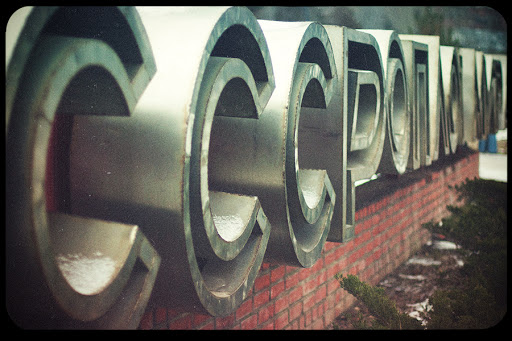I have never claimed to be the go-to person for "current events," but recently I may have surpassed myself.
I was chatting with a friend when she announced that she was thinking of taking a trip to Poland.
"Is that so?" I said politely, thinking dreamily of Czeslaw Milosz, Wisława Szymborska, St. Maximilian Kolbe. "Now, is Poland still part of Russia?"
"Part of … Russia?" she inquired.
"Yeah, you know. The U.S.S.R."
I could tell by the look on her face that I’d committed yet another mortifying gaffe. I’m used to such looks, having stopped watching TV sometime around the time "Mr. Ed" concluded its run.
I’m used to having conversations that start with a friend saying, for example, “How about that Bob McDonnell?” “Now is he a country western singer?” I’ll grope. “No, hold on, he plays basketball?” “Heather, he’s the former governor of Virginia. He was just involved in a huge federal corruption trial. He and his wife … oh, forget it.”
Anyway, imagine my surprise to consult Wikipedia and find that "The Union of Soviet Socialist Republics (USSR) or Soviet Russia for short, was a constitutionallysocialist state that existed in Eurasia between 1922 and 1991."
Hey, in 1991 I’d just moved to L.A. and was looking for a job, okay? I was busy that year. I knew something had been going on over there since Sputnik: Glasnost, Chernobyl, Gorbachev, and now… Putin, is that his name?
But no, seriously, I try to stay abreast. The problem is my brain tends to skip over everything that isn’t a non-political human interest story: bizarre crimes, medical mishaps, backwoods blues singers, obscure film-makers, obsessives, recluses, religious fanatics, martyrs, obituaries. I’m always dutifully trying to memorize who’s on what side in which war, but no sooner do I get things straight than the battle lines shift again. Even now, when I hear “Rwanda,” I have to pause and call to mind the mnemonic device of “Hutu/hate” to remember which side was which.
The fact is, I feel very close to Russia. Back in the day, I drank a ton of Popov vodka. I’ve seen Andrei Tarkovsky’s "Stalker." I can tell you where I was when I read War and Peace (on the island of Syros, Greece, wasted on retsina). I’ve practically memorized the opening lines from Dostoevsky’s Notes from the Underground. I’ve pored over Chekhov’s stories, plays and, especially, letters.
And I may not be totally clear on what’s going on now in the Ukraine and whatnot, but I totally know Russia was in big, big trouble before. Recently, in fact, I read a slew of amazing books by people who’d been in the prison camps: The Arctic Death Camps by Robert Conquest, Richard Würmbrand’s Christ in the Communist Prisons,The Accused by Alexander Weissberg-Cybulski, and perhaps my favorite: The Woman Who Could Not Die by Julia de Beausobre.
Upon learning that her husband Nicolay, imprisoned in another camp, had been shot, Beausobre wrote:
And while I may not be able to quote you chapter and verse of Russia’s political history, I know their long history of solitary pilgrimage: St. Serafim, who lived in a hut in the snow; the anonymous wandering monk who wrote The Way of a Pilgrim; Catherine de Hueck Doherty. I know their long history of loving and seeking Christ. I know that they have suffered, unbelievably.
I know (because I’m reading French philosopher René Girard’s
The Scapegoat) that Kierkegaard said “The mob is a lie” and that [Swiss literary critic Jean] “Starobinski notes that evil in the Gospels is always on the side of plurality and the crowd,” to which I would add the collective, the bloc, the movement, the ideology.
I know that the people who rail against religion cannot have looked too closely at what happens when those in power try to stamp religion out. I know that simply converting from communism to capitalism isn’t going to sate Russia’s spiritual hunger, because look at us.
I know that estimates for the number of people who died in Stalin’s purges, deportations, exiles, famines and prison camps range from 4 million to 10 million.
I know the way I purge, deport and exile in my own heart and that is why my plea, all day, every day, is the Jesus Prayer from The Way of a Pilgrim: “Lord Jesus Christ, have mercy on me, a sinner.”
I know this line from Solzhenitsyn’s Cancer Ward: “There is great satisfaction in remaining faithful; perhaps it is the greatest satisfaction of all. Even if no one knows about your faithfulness, even if no one values it.”
I know that Dostoevsky said: “Humble charity is a terrible force; it is the greatest force in the world.”
But hunh. Wow. 1991. I’ll be darned. You learn something new every day.
Heather Kingis a Catholic convert, sober alcoholic, and writer whose most recent book is STRIPPED: Cancer, Culture and The Cloud of Unknowing. She speaks nationwide and blogs at Heather King: Mystery, Smarts, Laughs. For more, see her new About page.

